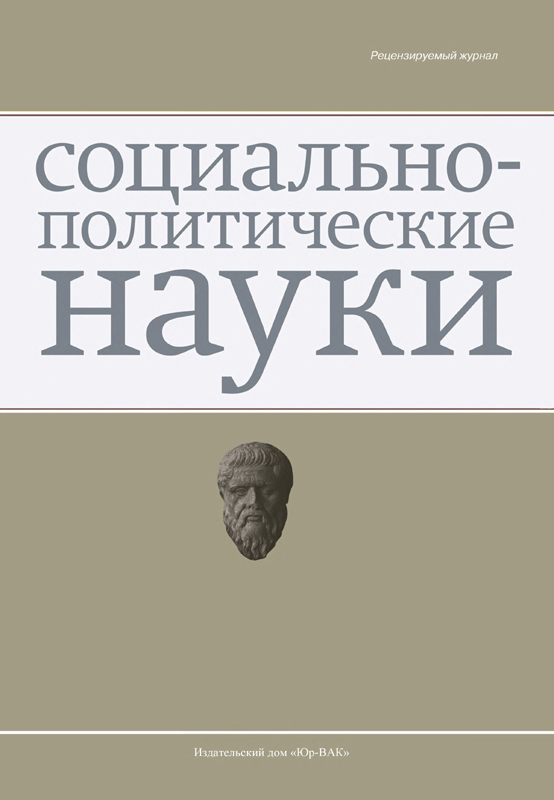The Category of Gender in the Context of Assisted Reproductive Technologies Application: From the “Darkness” of Practical Problems to the “Light” of Legislative Decisions
- 作者: Dovnar A.N.1
-
隶属关系:
- Moscow State University of Humanities and Economics
- 期: 卷 12, 编号 4 (2022)
- 页面: 144-151
- 栏目: Articles
- URL: https://journals.eco-vector.com/2223-0092/article/view/535858
- ID: 535858
如何引用文章
详细
The implementation of assisted reproductive technologies (hereinafter referred to as ART) is characterized as a “lifeline” for individuals who, for whatever reason, cannot perform their reproductive function and are have to overcome infertility through the provision of specialized medical care. At the same time, technological progress in reproductive medicine is fraught with a whole galaxy of problematic aspects subjected to a comprehensive analysis by the author of the undertaken research: 1) the lack of clear certainty in the possibility (impossibility) for a single man to use ART; 2) inconsistency of the legal regulation of marriage and family relations, during which one of the spouses decides to change sex, which indicates the actual legalization of "non-traditional" marriages; 3) carrying out artificial termination of pregnancy on the basis of the sex of the unborn child. In order to effectively solve the identified problems, it is necessary to adopt the following decisions at the legislative level: 1) granting a single man, on an equal footing with a single woman, the right to use ART to overcome infertility; 2) setting a ban for persons in respect of whom a sex reassignment procedure has been launched, which could lead to the formation of a same-sex union, to enter into marriage, as well as the introduction of a document on gender reassignment as a basis for marriage dissolution; 3) setting a ban on abortion based on the sex of the unborn child, as well as artificial termination of pregnancy for non-medical reasons.
全文:
作者简介
Alexey Dovnar
Moscow State University of Humanities and Economics
Email: dovnar.mggeu@mail.ru
Faculty of Law Moscow State University of Humanities and Economics, Moscow, Russian Federation
参考
- Akimova Yu.A. Realization of the right to marry, create, support and protect the family from the point of view of the principle of gender equality. State and Law. 2020. No. 5. P. 71. (In Rus.)
- A possible ban on surrogate motherhood in Russia is being discussed at the Izvestia Multimedia Information Center. URL: https://iz.ru/1289412/2022-02-11/v-mitc-izvestiia-obsuzhdaiut-vozmozhnyi-zapret-surrogatnogo-materinstva-v-rossii (data of accesses: 04.06.2022).
- Voloshin A.I., Derevyankina S.A. Selective abortions as a form of violation of the reproductive rights of women. Scientific notes of V.I. Vernadsky Crimean Federal University. Legal Sciences. 2020. Vol. 6. No. 2. Pp. 124. (In Rus.)
- Dovnar A.N. Changes in legislation and problems of reproductive tourism: review of hearings in the Public Chamber of the Russian Federation. Gaps in Russian legislation. 2021. Vol. 14. No. 1. P. 88. (In Rus.)
- Dovnar A.N. Legal problems related to the process of gender reassignment and the protection of the rights of intersex patients in the Russian Federation. Problems of Economics and Legal Practice. 2022. Vol. 18. No. 1. Pp. 74. (In Rus.)
- Erokhina E.V., Korneichuk K.Yu. Marriage relations and gender reassignment. Questions of science and education. 2018. No. 6 (18). P. 99. (In Rus.)
- Draft Law No. 41630-8 “On Amending Certain Legislative Acts of the Russian Federation” (in terms of establishing the requirement for citizenship of the Russian Federation when using surrogate motherhood in the territory of the Russian Federation). URL: https://sozd.duma.gov.ru/bill/41630-8 (data of accesses: 04.06.2022).
- Draft Law No. 790069-6 “On Amendments to Article 14 of the Family Code of the Russian Federation” // URL: https://sozd.duma.gov.ru/bill/790069-6 (data of accesses: 19.06.2022).
- Meeting of the working group on the topic: “Legislative regulation of the export of children by foreigners through the procedure of surrogate motherhood”. URL: http://duma.gov.ru/multimedia/video/events/58636/ (data of accesses: 04.06.2022).
- Kochurina A.Yu. “Reproductive tourism” in Russia: opportunities and problems of using the method of surrogate motherhood. In: Reforming accounting and law in modern Russia. Collection of scientific works of undergraduate, graduate and postgraduate students. Edited by V.A. Baranova, A.N. Prizhennikova. Moscow, 2018. P. 306.
- Novginov D.S. Avoiding embrace: Selective abortion as a demographic threat. StatusPraesens. Gynecology. Obstetrics. Barren marriage. 2019. No. 4 (59). P. 27. (In Rus.)
- Rusanova N.E. Gender choice in assisted reproductive technologies: Opportunities, dangers, prospects. Population. 2020. Vol. 23. No. 2. P. 131. (In Rus.)
补充文件








